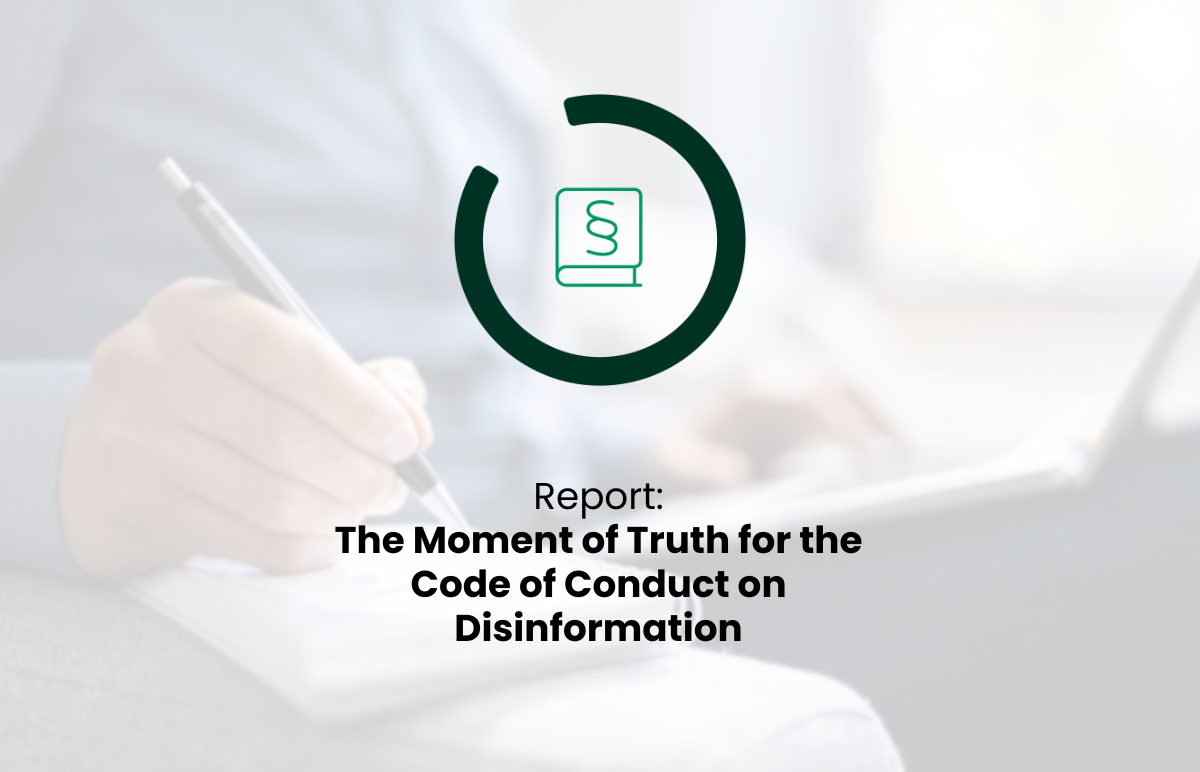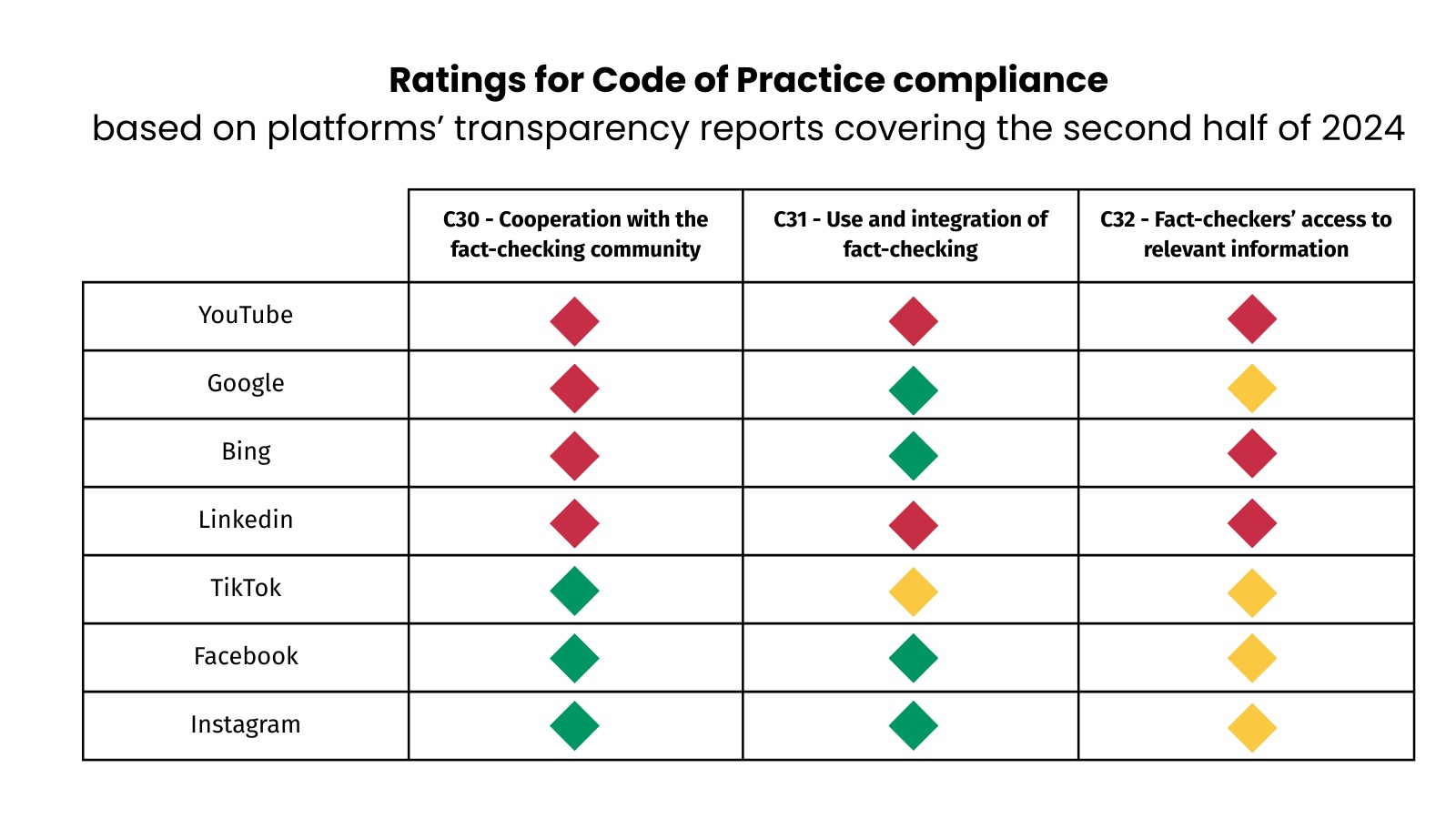
11 September 2025 – The European Fact-Checking Standards Network has released a report analyzing major platforms’ last Code of Practice reports, published in March 2025, covering the second half of 2024. Despite becoming an official code of conduct of the Digital Services Act (DSA) in July 2025, platforms still do not comply fully with relevant commitments.
Analysis in this report shows that some of the same platforms that ignored their commitments for years are now officially abandoning them, but still presenting themselves as Code signatories. The EFCSN asserts that the Code itself is still fit for purpose, but it is unacceptable for some platform signatories to claim they are doing their part, let alone claim that their participation in the Code should be considered as evidence of their compliance with the law.
Below is a summary of the EFCSN’s evaluation of the platforms’ compliance with the Code of Practice chapter on fact-checking based on the transparency reports, and the full report can be found here. This is the most recent in a series of reports which follows the Code of Practices reports, tracking the evolution of platforms’ actions and commitments.

Some key takeaways from the report include:
- Despite previous Google’s promising collaborations with fact-checkers, Google has unsubscribed on the section on cooperation with the fact-checking community, as has YouTube. YouTube has not made any efforts toward integrating fact-checking in its platforms, while Google has also removed its extremely successful fact-checking snippet, ClaimReview.
- Bing has not provided much information about its collaboration with fact-checkers, showing a distinct lack of transparency. The search engine relies on a ClaimReview integration, although the Microsoft Copilot AI apparently does not use the data, representing a potential opportunity for future collaboration and data sharing with fact-checkers.
- LinkedIn has unsubscribed from the fact-checking chapter of the Code, claiming it “is not proportionate to their risk profile”, while relying on a single fact-checking partner to cover all of Europe.
- TikTok has a fact-checking program in place and remains a signatory of the fact-checking chapter of the Code, but its subscription document in January 2025 included an asterisk conditioning that commitments on other platforms’ subscription. TikTok’s fact-checking is connected to moderation, rather than user-facing, which is a place for improvement.
- Meta’s Third-Party Fact-Checking Program is best-in-class in many respects, but the EFCSN is deeply concerned about its future, given the announcement in early 2025 that it would end in the US and move to a Community Notes model, which has shown early signs of the same issues with X/Twitter’s.